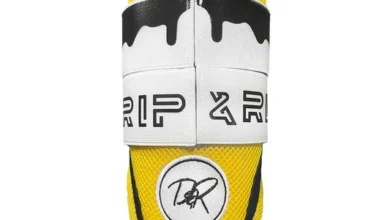Beyond Packaging: Polyethylene Sheeting as a Key Player in Supply Chain Sustainability

In the quest for sustainable business practices, companies are increasingly recognizing the pivotal role of materials beyond traditional packaging in achieving supply chain sustainability.
Polyethylene sheeting, a versatile and durable material, has emerged as a key player in this arena, influencing various stages of the supply chain. From protecting goods during transportation to minimizing waste, polyethylene sheeting contributes to a more sustainable and environmentally conscious approach to logistics.
Optimized Transportation and Reduced Carbon Footprint
Polyethylene sheeting’s lightweight nature plays a crucial role in optimizing transportation efficiency. As a lightweight material, it reduces the overall weight of packaging, leading to lower transportation costs and a decreased carbon footprint.
This benefit aligns with the growing emphasis on eco-friendly logistics practices, helping companies meet sustainability targets and reduce their environmental impact.
Protection Against Environmental Hazards
Polyethylene sheeting acts as a protective shield for goods during transportation and storage, guarding against environmental hazards such as moisture, dust, and temperature fluctuations.
By minimizing the risk of damage or spoilage, the material contributes to a reduction in product losses along the supply chain. This protection not only enhances the quality of goods but also supports sustainability goals by preventing unnecessary waste.
Customization for Sustainable Solutions
One of the strengths of polyethylene sheeting lies in its adaptability and customization. Manufacturers can tailor the material to specific product and supply chain requirements, ensuring optimal protection while minimizing excess material usage.
The ability to create bespoke solutions reduces waste and aligns with the principles of sustainable resource management.
Recall Ability and Circular Economy
Polyethylene sheeting is recyclable, offering a pathway for businesses to participate in the circular economy. By incorporating recycled content into new products, companies can reduce their reliance on virgin materials and contribute to the overall reduction of plastic waste.
This commitment to recycling aligns with consumer expectations for sustainable practices and can enhance a company’s reputation as a responsible steward of the environment.
Extended Product Shelf Life
Polyethylene sheeting’s role in extending the shelf life of products is not limited to packaging alone. By protecting goods from external factors such as moisture, UV radiation, and contaminants, the material ensures that products remain in optimal condition for a more extended period.
This extended shelf life not only reduces the frequency of replenishments but also minimizes the environmental impact associated with the production and transportation of replacement goods.
Versatility in Cold Chain Management
Polyethylene sheeting proves instrumental in maintaining the integrity of temperature-sensitive products within the cold chain. As an insulating material, it helps regulate temperature during transportation and storage, preventing temperature fluctuations that can compromise the quality of pharmaceuticals, biotechnology products, and perishable foods.
By ensuring a consistent and controlled environment, polyethylene sheeting contributes to the sustainability of the cold chain by reducing the likelihood of product spoilage and waste.
Mitigating Single-Use Plastic Waste
The adaptability of polyethylene sheeting allows for the creation of durable and reusable packaging solutions. By shifting towards reusable packaging made from polyethylene, companies can significantly reduce their reliance on single-use plastics. This transition aligns with the global movement to mitigate plastic pollution and fosters a more sustainable approach to packaging within the supply chain.
Protecting Goods During Storage and Warehousing
Polyethylene sheeting’s protective properties extend to goods during the storage and warehousing phases of the supply chain. By shielding products from dust, pests, and other potential contaminants, the material minimizes the need for additional protective measures and reduces the likelihood of damaged or compromised inventory.
Conclusion
Polyethylene sheeting’s influence on supply chain sustainability extends far beyond its conventional role in packaging. As a multifaceted material, it contributes to optimized transportation, environmental protection, customization for sustainable solutions, recyclability, and the extension of product shelf life.
Embracing polyethylene sheeting as a key player in supply chain sustainability not only benefits individual businesses but also fosters a more environmentally responsible and resilient global supply chain. In a world where sustainability is increasingly integral to business success, polyethylene sheeting stands out as a valuable ally in achieving lasting and positive change.


